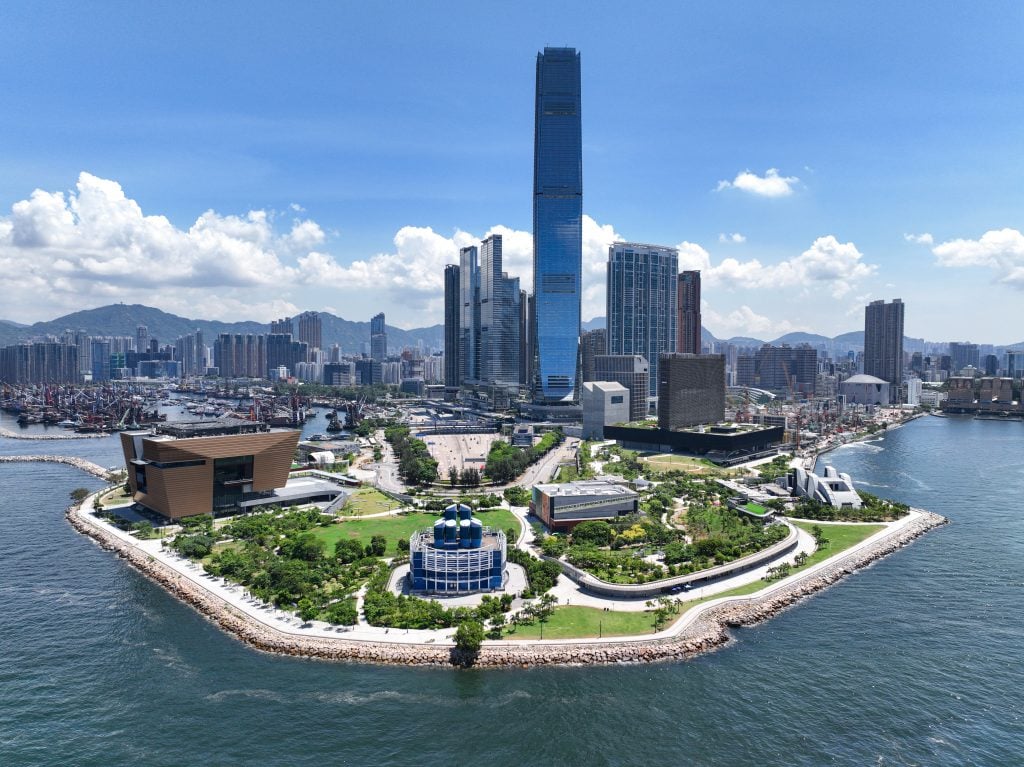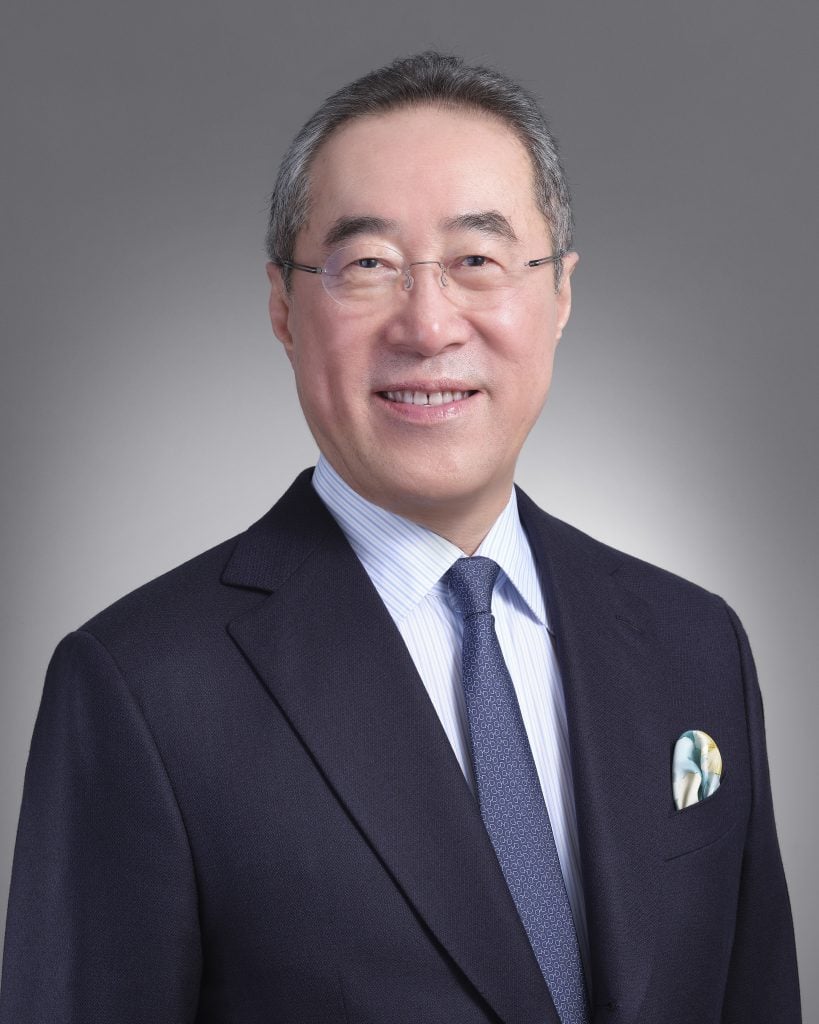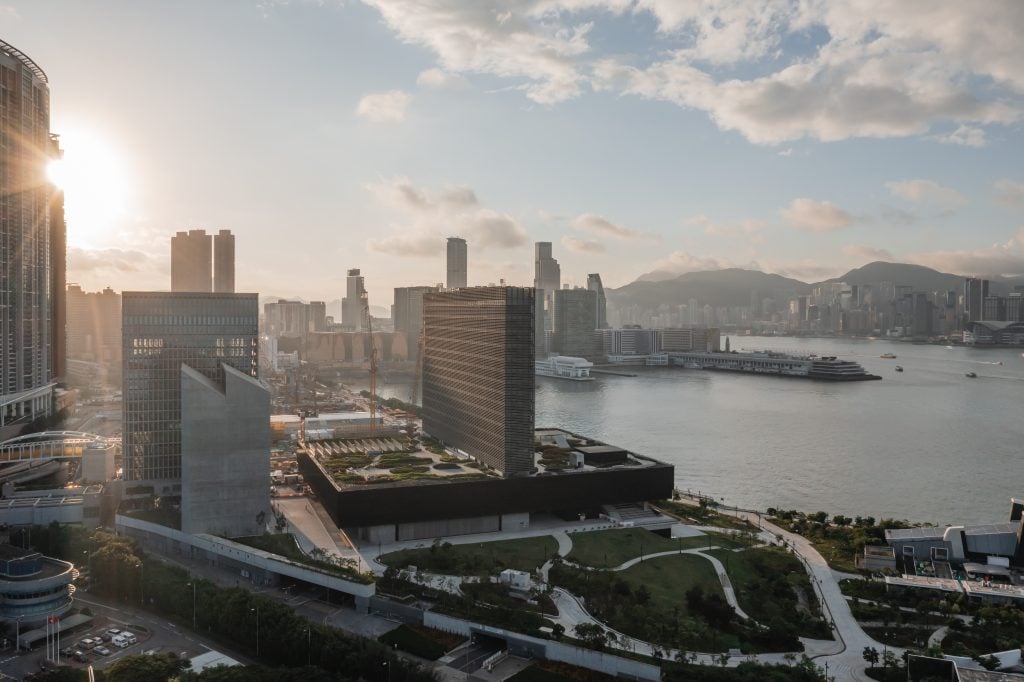Art World
Hong Kong Arts Hub Faces ‘Unfair’ Closures Amid Funding Crisis
West Kowloon Cultural District has urged the government to take action to avoid reducing museum hours and raising ticket prices.

West Kowloon Cultural District has urged the government to take action to avoid reducing museum hours and raising ticket prices.

Cathy Fan

The immense financial challenges facing the West Kowloon Cultural District (WKCD), Hong Kong’s mega arts hub and home to M+ and the Hong Kong Palace Museum, have never been more pressing. Henry Tang, the chair of the cultural district’s authority board, has urged the government to address the district’s funding crisis by this August to prevent the closure of its museums and performing arts center.
In an interview with i-Cable News on May 18, Tang said that WKCD has already submitted a proposal for what to do when the authority’s funds are drained next year, but the administration has not responded.
WKCD recorded net losses that almost doubled from HKD 869 million ($111 million) in 2021 to HKD 1.56 billion ($199 million) in 2022. Despite a 40 percent cost recovery post-pandemic, the arts hub has relied on short-term loans to stay afloat.
Before Art Basel Hong Kong in March, Tang told local media that the district’s cash resources would be depleted by the middle of 2025. He dismissed the idea of bankruptcy and insisted a plan must be finalized by June or the district will not be able to secure exhibitions and art projects with potential partners. He also mentioned that the WKCDA has proposed ways to increase revenue, including reviewing service charges, raising ticket prices and venue rental fees, and even selling a portion of the site’s 40 hectares of land.

Henry Tang Ying-yen, Chairman of the Board of the West Kowloon. Cultural District Authority. Photo: Winnie Yeung @ Visual Voices Courtesy of West Kowloon Cultural District Authority
A spokesman for Hong Kong’s Culture, Sports, and Tourism Bureau confirmed that no measures have been approved yet.
Tang cited further cost-cutting measures that may need to be implemented, including reducing museum opening days to four days a week from six, and limiting operating hours of the opera house. Yet, in his recent interview, he questioned whether these measures would be “fair to the public.”
“After all, this is not a commercial undertaking but a key public policy project,” he said, emphasizing that restricting the facilities’ operational days contradicts the national policy to establish Hong Kong as a cultural exchange hub.
In March, WKCDA hosted a Memorandum of Understanding signing ceremony with 21 leading global arts and cultural institutions, celebrating a milestone in Hong Kong’s development as an international arts hub and marking the start of the Hong Kong International Cultural Summit 2024, attended by over 100 leaders from around the world.

M+, Hong Kong, Photo: Kevin Mak, © Kevin Mak. Photo: Courtesy of Herzog & de Meuron
The development of WKCD has a long and complicated history dating back to the turn of the century. When the plan was finalized, the arts hub received an upfront endowment of HK$21.6 billion ($2.7 billion) in 2008, making it one of the world’s most ambitious and well-funded public art projects at the time. However, delays in construction, cost surges, and the Covid-19 pandemic strained its finances. Of the public funding, 86 percent was earmarked for the site’s infrastructure, with only eight percent for museum collections and six percent for project management and planning.
Tang warned in August of last year that programs at the hub would cease as funding dwindled, describing the cuts as “lifeblood flowing out like a stream.” Betty Fung, CEO of the West Kowloon Cultural District Authority (WKCDA), echoed that the financial model approved by the government in 2016 has significantly challenged its operations.